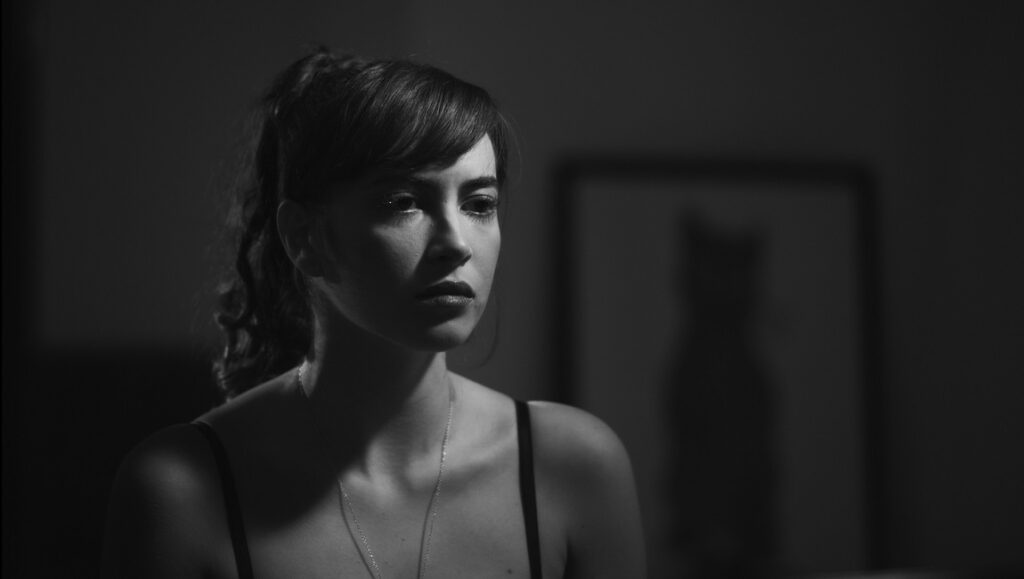Black Medusa is cast with a certain austere beauty, but is an otherwise empty exercise in bland, utilitarian form.
In a thankless role as one of the most morose femmes fatales in memory, Nour Hajri plays Nada, a (mostly) mute office worker by day, serial killer (men only, natch) by night. We never find out why. Such is the pseudo-provocative premise of Black Medusa, the debut film from two Tunisian brothers: Youssef Chebbi and (the unbearably pretentious, must be lower-case when typed) ismaël. The action (or more often inaction) here is ostensibly intended to be taken as a metaphor, one the audience can elucidate with their sure-to-be-extensive knowledge of post-revolution Tunisia’s social environment. At least, that seems like the best bet for tracing the genesis of both Nada’s rigorously introverted demeanor and her nocturnal violent streak. Other possibilities given to us in the film include: a bowie knife, found at one of her victim’s apartments and with which Nada becomes enamored, and a vaguely romantic entanglement Nada has with a new coworker, Noura (Rym Hayouni) — although pretty much from frame-one, Nada is cutting down her suitors (literally), letting the poor schmucks flirtatiously regale her with a lame story about themselves before getting shanked or… well, no other memorable killings come to mind.
And that’s really the issue with Black Medusa: It’s neither a film of captivating substance nor of anything but utilitarian form. Sure, the black-and-white cinematography has a certain austere beauty to it, especially one long tracking shot of Noura slinking through a forest, leading a man (whose perspective the sequence is shot from) to his imminent doom. But when it comes to the violent acts themselves, we are firmly in the realm of self-important arthouse filmmaking that clearly thinks itself above genre aesthetics. (This, even though one scene of Nada’s repeated thrusting of her blade into an unsuspecting date’s gut barely tries to hide that said blade is one of those retractable props, a side-effect of shooting the sequence in a single wide shot with clear view of the knifing!) Genre-heads can stomach a whole lot of ambiguity if a threadbare narrative is packaged attractively, but Black Medusa is long on tasteful tracking shots and very light on visual verve. And if this film isn’t for that set, it’s hard to see what those looking for a more psychologically-focused form of thriller will find in a heroine who speaks a handful of words and about whom, prior to our introduction, we never learn anything. The film’s title, that knife, and the sole relationship here that amounts to anything approaching connection all hint at potential areas that the Chebbis— excuse me, Chebbi and ismaël — could have probed. And while the Tunisian cityscape (blaring club life and eerily quiet streets alike) is often eye-catching, what audience wants to come to a serial killer movie to admire the scenery?
You can currently stream Youssef & ismaël Chebbi’s Black Medusa on Mubi.
Originally published as part of IFFR 2021 — Dispatch 4.


Comments are closed.